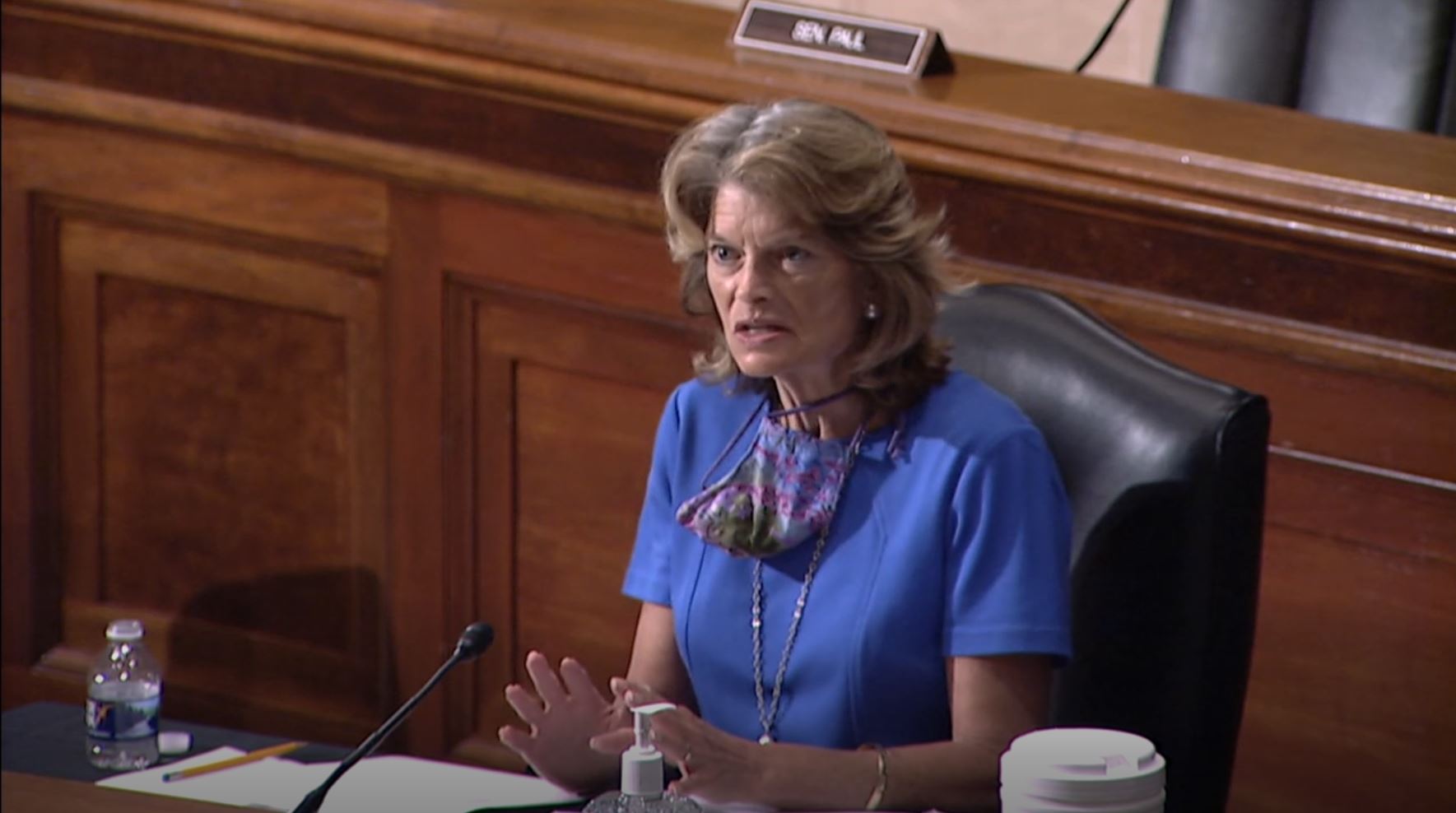Murkowski Addresses Need for Student Relief During Senate HELP Committee Hearing
U.S. Senator Lisa Murkowski (R-AK) took part in a Senate HELP Committee hearing titled COVID-19: Going Back to College Safely. The hearing focused on how institutions of higher education are preparing for students, faculty, and staff to return to campus this fall. Those efforts include implementing testing and contact tracing, restructuring classroom and dormitory spaces, providing appropriate personal protection equipment, and protecting those with increased medical risk.
The hearing included testimony from Mitch Daniels, President of Purdue University; Dr. Christina Paxson, President of Brown University; Dr. Logan Hampton, President of Lane College; and Georges C. Benjamin, MD, Executive Director of the American Public Health Association.
CLICK HERE for video.
During the hearing, Senator Murkowski noted that while Congress worked hard to get direct relief out to businesses, schools, and individuals through the Cares Act, she remains concerned that students had not been adequately included in those response efforts. She noted:
“Those who are over 16 and not dependent on their parents weren’t able to receive direct assistance, their parents weren’t able to receive direct assistance on their behalf, and many times students were not eligible for unemployment insurance. In the University of Alaska’s situation, what they were able to do is provide financial assistance to many students, from everything from ensuring they had transportation back to their homes, shipping their belongings back, or emergency funds. And I know tuition costs in many institutions have been refunded, but to which extent have we been able to make our students whole in terms of the costs that they incurred? As you know, most students don’t have a lot of disposable income out there, where they’ve got money in savings where they can pick this up.”
Murkowski then asked the panel’s college presidents whether they had been able to fully reimburse students for their expenses related to the pandemic, including costs due to unexpected travel, housing, and lost classes.
In response, President Daniels said that he hoped the amounts provided by Purdue University were adequate, and the university was able to provide substantial refunds for certain fees, housing, and other costs. He shared, “We’ve increased our financial aid to the extent we could, and we’ll learn a lot more in the next few weeks – preexisting and our incoming, aspiring freshman –have been prevented by the financial aid agency in doing what they are very eager to do.”
President Paxson confirmed that, like other schools, Brown University “tried to pull out all the stops to try to support our students, our highest needs students as they transitioned home” with travel, laptops, WiFi, books, etc.” She explained, “What we found though is the needs are continuing and in some ways growing. As unemployment has increased, students’ families are losing their jobs, student summer jobs have evaporated, there’s nothing for students this summer. And so while we’re trying to do all we can to try to find them alternative things and things for pay for the summer, it’s very, very hard to meet that full need.”
Doctor Hampton highlighted that Lane College was able to use the student portion of the CARES Act and distribute funds directly to students’ bank mobile accounts. “Seventy-eight percent of our students communicated to us that they need assistance with food. Seventy-three percent of our students indicated that they need assistance with housing. And so we prorated the amount for food and housing, and we also added in some support for transportation,” Hampton continued. “Now we are using the funds to help students return to college and support their educational needs for any number of things – for food, for housing, for digital supplies, digital resources, hotspots – we are supporting those students on a case-by-case basis.
Senator Murkowski will be working with her colleagues in the Senate to address the financial capacity of students to complete their studies as colleges, universities, and other postsecondary institutions re-open in the fall.
BACKGROUND:
- On May 7, 2020, the Senate HELP Committee held a hearing titled “Shark Tank: New Tests for COVID-19.” The hearing focused on the current status of testing for the COVID-19 virus and how the National Institutes of Health (NIH) and the Biomedical Advanced Research and Development Authority (BARDA) are working to support the rapid development of new tests for COVID-19, through the NIH Rapid Acceleration of Diagnostics (RADx) Initiative and other programs.
- On May 12, the Senate HELP Committee held a hearing titled “COVID-19: Safely Getting Back to Work and Back to School.” The hearing focused on how U.S. Department of Health and Human Services agencies are working to help states and communities prepare to reopen in light of the COVID-19 pandemic, including efforts to increase testing, accelerate research, develop treatments and vaccines, and provide public health and safety guidance.
COVID-19 SAFETY NOTICE:
In accordance with the U.S. Senate’s Attending Physician and the U.S. Senate Sergeant at Arms, in consultation with the Department of Health and Human Services and the Center for Disease Control and Prevention, Senate hearings have enacted the following adjustments to help ensure the health and safety of all participants during the COVID-19 pandemic: Members were seated six feet apart to respect social distancing guidelines; Participants were given the option to take part in the hearing by video conference; To maintain social distancing, very limited seating was accommodated; Members wore masks to and from the hearing room, but were allowed to remove masks during the hearing, if they chose to do so, as they were seated 6 feet from other members.









